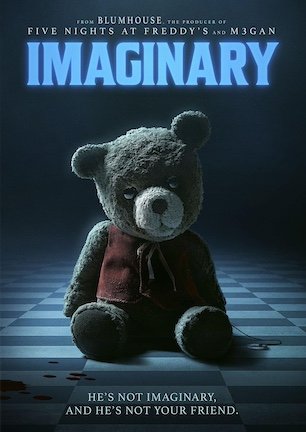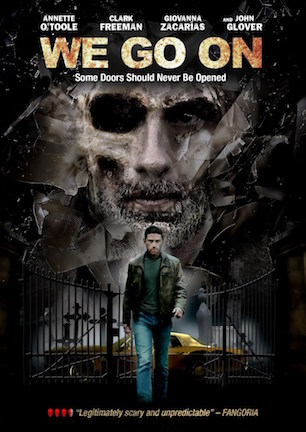Studio: Music Box Films
Director: David Ruehm
Writer: David Ruehm
Producer: Franz Novotny, Alexander Glehr, Christof Neracher, Christian Davi, Thomas Thumena
Stars: Tobias Moretti, Jeanette Hain, Cornelia Ivancan, Dominic Oley, David Bennent, Karl Fischer, Erni Mangold, Lars Rudolph, Anatole Taubman
Review Score:
Summary:
A vampire seeks the help of Sigmund Freud when his nagging wife complicates an attraction to a reincarnated lost love.
Review:
You know the seven-year itch said to develop in the humdrum doldrums of a marriage gone cold? Imagine the agony of its seven hundred-year equivalent as experienced by a depressed Austrian vampire.
Count Geza von Kozsnom is fed up to his fangs with the neverending nagging of his wicked wife Elsa and he hopes the sage counsel of Dr. Sigmund Freud can set him straight. Softened by centuries of routine romance, Geza pines for a bygone past spent with his long-lost love Nadila. Alas, Geza’s wistful wishes are incessantly interrupted by Elsa’s demanding desires for Geza to validate her beauty. She has never been able to see her own face, after all.
A chance glance at a portrait in Freud’s office turns Geza’s gargoyle gaze toward Lucy, a working class woman caught in a fizzling relationship of her own. So obsessed with some ideal blonde beauty is Lucy’s artist boyfriend Viktor that he can’t even be bothered to depict her brunette hair correctly. Lucy is willing to fulfill his fantasy by becoming the blonde in the painting anyway, but her timing couldn’t be worse.
Convinced that Lucy is Nadila reborn, Geza puts a spark of life in his undead eyes with the idea that a little full moon magic and a nibble on the neck can make Lucy his. To occupy Elsa in the meantime, Geza sets her up for a sitting with Viktor the artist to see if someone can’t finally capture the shrew’s image on canvas. New light is about to be shed on what everyone really wants from their respective relationships as both couples contend with the comedy that comes from mixing nuptials and Nosferatu.
“Therapy for a Vampire” doesn’t drain its comedic blood from the easy prey neck of a typical horror-humor hybrid involving creatures of the night. Writer/director David Ruehm’s script includes one gag about garlic, another about daylight, etc., yet checks off expected ha-has in individual instances before digging up new dirt on the notion of undying ennui being a curse worse than immortality.
Refreshingly, “Therapy for a Vampire” eyes untapped veins for its unique wink at the troubles of a formerly fearsome count fighting to find a figurative beat for his heart. Deeply-deserved applause particularly goes to hilarious use of the seldom-seen-onscreen superstition about vampires having an obsession with counting. And you thought Sesame Street’s arithmomaniac monster earned his name for its Dracula connotation alone.
Part of the film’s refusal to dive into familiar depths is due to vampire satire being a secondary target to the straight aim at playfully parodying love and marriage. If you’re expecting another “What We Do in the Shadows” (review here) or even a companion comedy along the lines of Mel Brooks’ “Dracula: Dead and Loving It,” this isn’t it. “Therapy for a Vampire” uses its frame as a reflective mirror, semi-pun intended, to humorously examine how humans, and vampires, handle their significant others when stale bonds starve for a bite of fresh excitement.
Of less enthusiastic note, “Therapy for a Vampire” is also a case of wanting more from a concept. Much material can be mined from the creative setup of 500 years of marriage having dulled a vampire’s lust for undead life, though the screenplay only takes Count Geza von Kozsnom partway down that path. Sigmund Freud’s perfunctory presence is more novelty than necessity and a conclusion in need of a more graceful glide leaves some limp laughs for a last impression.
Flipping that Pro/Con coin one final time, “Therapy for a Vampire” nevertheless comes away with enough room to remain enchanting. With more subtlety than slapstick, clever characters ably acted by a carefully tuned cast pepper personality into even the drabbest of moments. Layer in a period perfect score of violin strings with the affectingly odd aura of soundstages mixed with CGI backdrops, and the movie’s moderate charm and mild quirks are enough to keep those susceptible to sentimentality spiked with snark spellbound.
NOTE: The film’s German title is “Der Vampir auf der Couch.”
Review Score: 65







If you want to see impossible amounts of blood explode crimson colors like the world’s worst version of a gender reveal, well, “Abigail” at least has that.